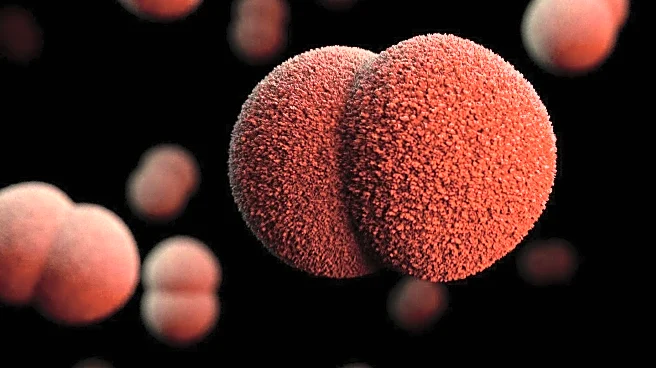What's Happening?
A research team led by Professor Eijiro Miyako at the Japan Advanced Institute of Science and Technology has developed a pioneering bacterial therapy for cancer that operates independently of the immune system. This new approach, called AUN, utilizes two bacterial strains, Proteus mirabilis and Rhodopseudomonas palustris, to eradicate tumors. The therapy has shown remarkable tumor clearance in both mouse and human cancer models, even under immunocompromised conditions. The bacterial pair works in harmony to target and destroy tumor vasculature and cancer cells, offering a potential solution for patients where standard treatments fail.
Why It's Important?
This development represents a significant advancement in cancer treatment, particularly for immunocompromised patients who cannot benefit from conventional immunotherapies. By bypassing the need for immune cell activity, the AUN therapy could provide a new therapeutic option for patients undergoing chemotherapy or radiotherapy. The approach also minimizes side effects, such as cytokine release syndrome, which is common in other treatments. This innovation could lead to more inclusive and effective cancer therapies, potentially transforming the landscape of cancer treatment.
What's Next?
The research team is preparing to launch a startup to accelerate the social implementation of this therapy, with plans to begin clinical trials within six years. This step is crucial for bringing the therapy to market and making it accessible to patients worldwide. The success of these trials could pave the way for widespread adoption of bacteria-based cancer therapies, offering hope to many who have exhausted other treatment options.









